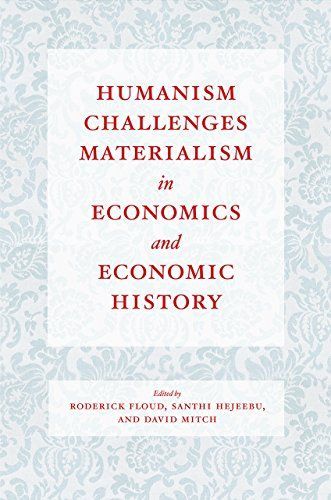
Humanism Challenges Materialism in Economics and Economic History
Economics as a mathematical exercise, which too often relies on the notion of perfectly rational actors, doesn t have a perfect grasp of reality. What economics could use most, as many have pointed out, is a more realistic view of human beings, and how non-material beliefs and values shape the economy. "Humanism Challenges Materialism in Economics and Economic History" is a new synthesis of the most promising perspectives of this more human-centric approach to economics. Roderick Floud, Santhi Hejeebu, and David F. Mitch have brought together a variety of top scholars from an formidable range of disciplines to develop and illustrate three specific approaches: how individual beliefs influence material outcomes, how collective beliefs affect the economy, and how the methods of economics are not just higher-order math but forms of rhetoric, philosophy, and history. By bringing together these fundamental yet alternative conceptions of economics as informed by the humanities, and organizing them into effective and complementary groups, the volume is a huge step forward in developing a much more realistic conception of the long story of capitalist growth."